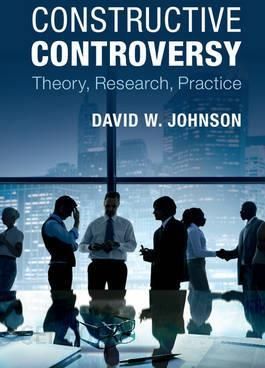Description
Why do people make decisions based on their own perspective without considering alternative points of view? Do differences of opinion enhance or obstruct critical thinking? Is it wise to seek out people who disagree with you and listen to their objections to your conclusions? Focusing on the theory, research, and application of constructive controversy, this book analyses the nature of disagreement among members of decision-making groups, project teams, academic study groups, and other groups that are involved in solving problems. Johnson demonstrates that this theory is one of the most effective methods of enhancing creativity and innovation, decision making, teaching, and political discourse. The book includes entertaining and intriguing examples of how constructive controversy has been used in a variety of historical periods to advance creativity, achieve innovations, and guide democracies. It will be welcomed by students in the fields of social psychology, management/business studies, education, and communication studies. Advance praise: This book is a must-read for any scholar and practitioner who is interested in constructive controversy. It provides a breathtaking journey in the history of one of the most powerful mechanisms in social interaction, and a wealth of insights on how to foster informed political decisions, accompany accurate professional choices, and elicit diversified learning. Fabrizio Butera, University of Lausanne Advance praise: Hurray for cooperation! Johnsons argument about the value of cooperation in the context of controversy is theoretically cogent, research based, and practically relevant. This is a major achievement that should be celebrated by academics and practitioners alike. You will thoroughly enjoy reading this book. Daniel Druckman, George Mason University, Virginia, Macquarie University, Sydney and the University of Queensland1. Need for constructive controversy?; 2. The nature of constructive controversy; 3. Theory of constructive controversy; 4. The processes of constructive controversy and concurrence seeking; 5. The outcomes of constructive controversy; 6. Conditions mediating the effects of constructive controversy; 7. Constructive controversy and decision making; 8. Constructive controversy in education; 9. Constructive controversy and political discourse in democracies; 10. Constructive controversy, creativity, and innovation; 11. Constructive controversy and building and maintaining peace; 12. Conclusions.
Nauki humanistyczne i społeczne
kijki do nordic walking, osiedle marzeń chmielarz, książka z kolorowankami, film pojutrze
yyyyy




